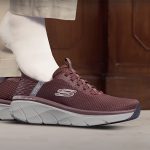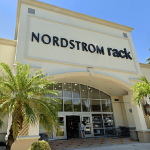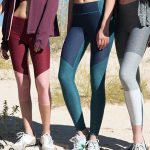Competition could soon intensify in the outdoor specialty space and it won't come from online retailers – at least not pure play online retailers.
A host of announcements indicates an acceleration in bricks-and-mortar expansion plans by several retailers will heighten competition in coming years – particularly in in the outdoor Mecca of Colorado.
The most obvious is L.L.Bean's announcement in March that its board of directors approved a plan to expand its U.S. store count from 26 full-price stores to at least 100 in the coming five years. The venerable Maine retailer, which is as renowned for its customer service as its iconic Bean boots, plans to open four stores this year, including its first store in Ohio. It entered outdoor Mecca Colorado last year and Minnesota in 2013. In March it announced a multi-year sponsorship deal with the U.S. Cross Country Ski Team and U.S. Nordic Combined Ski Team.
Nearly three years after being acquired by The TJX Companies Inc., Sierra Trading Post, is preparing for a significant expansion. Sierra Trading Post, which has long served brands as an important liquidation channel for surplus outdoor gear, opened its first two stores in Colorado in 2014 and pulled permits in early 2015 to build a third, which will be located in Colorado Springs. TJX CEO Carol Meyrowitz disclosed “STP” will open its first location in the Northeast later this year and the company broke ground in spring 2015 on a 350,000-square-foot expansion that will double the size of the fulfillment center in Cheyenne, WY.
Meyrowitz said she is still evaluating whether Sierra Trading Post has the potential to become TJX's fourth big retail chain after T.J. Maxx, Marshall’s and Homegoods, which operate thousands of stores in North America.
On May 1, REI announced plans to open a third distribution center by mid-2016 that will expand the number of customers it can reach with two-day ground service by 20 percent. The 400,000-square-foot DC will be located in Phoenix. The opening of a 525,000-square-foot REI DC in Pennsylvania in 2007 preceded a rapid expansion in the Washington DC to New York City corridor and other metro markets east of the Mississippi. REI ended 2014 with 140 stores, up seven from a year earlier. In May, the retail cooperative's board of directors elected Christine Day, who oversaw Lululemon's rapid U.S. store expansion, to its board.
Even Kohl's is getting into the act. As part of a major wellness and fitness initiative launched this spring, the department store expanded the selection of Coleman camping gear and
Columbia apparel at its more than 1,100 stores nationwide.
The expansions comes on the heels of a down year for the outdoor industry, particularly in the specialty outdoor channels, according to SportScanINFO, which collects point-of-sale data from about 15,000 retail stores that sell sporting goods. SSI's data show retail sales declined in three of the four outdoor specialty channels monitored in calendar 2014. Only three channels – Chain Specialty, National Accounts Internet and Mall Retailers – increased market share during the year.
Brands' rising DTC penetration
The data do not capture the significant volume of retail sales now running through brand's direct-to-consumer (DTC) channels.
VF Corp., for instance, operated 1,401 stores at the end of 2014, almost exactly double the number it operated in 2009. The company operated 125 The North Face stores and 200 Timberland stores worldwide. While VF Corp. does not break out how many of those are in the United States, it did report that DTC revenues rose 22 percent at its Outdoor & Action Sports Coalition in 2014 driven by increases of 31 percent and 24 percent for The North Face and Vans brands, respectively. On a corporate wide basis, DTC penetration climbed even higher, reaching 26 percent, up from 24 percent in 2013.
Patagonia now owns 30 stores in the United States. Prana, which is owned by Columbia Sportswear, opened its sixth store in 2014. Arc'teryx operates four stores in the United States and three in Canada. Black Diamond Inc. sold Gregory Mountain Products in 2012 in part to raise capital for a major DTC initiative.
There is also growing competition from big box sporting goods retailers, particularly in the hunting and fishing space, where several retailers have are enhancing their apparel, camping and private label assortments.
Gander Mountain opened 23 or remodeled locations in 2014, including many that use a 48,000-to-52,000-square-foot configuration to accommodate a broader assortment of apparel and footwear from such specialty outdoor and action sports brands, including Keen, Kühl, Merrell, Mountain Hardwear, Patagonia, Reef, Saucony and Solomon and Quiksilver. Gander Mountain is poised to shift its expansion toward the Southwest in coming years.
Utah-based Sportsman's Warehouse has also added many outdoor specialty brands and Icebreaker is developing an exclusive line of merino wool apparel for Cabela's. West Marine is also expanding its softgoods assortment under a turnaround plan being executed by a former REI executive. Fargo, ND-based Scheels will enter the Kansas City market this fall with a 220,00-square-foot store that will include bike, ski and paddle pro shops. While the company only operates 25 stores, its among the largest Trek bike dealers in the country. in Overland Park, KS later this summer that will include all the Billing's stores.
There are also a growing number of start-up brands skipping the wholesale channel to sell direct, such as the apparel brand Stio.
Not all these ventures will succeed, but they illustrate how specialty retailers in the human powered outdoor sports space face competition on two fronts.
“The specialty retailer are not only in a fight to be the best option for the consumer who is on their tablet or smartphone trying to find the product, but also to be the best option for a brand or distributor, who is trying to find the best way to sell the product,” notes Dan Mann, whose Mann Consulting Group provides training and consulting services to specialty retailers in the outdoor, bicycle, snow sports and action sports markets. “That’s why specialty retail has to keep pushing to get special. I don't think it's going to go away.”















